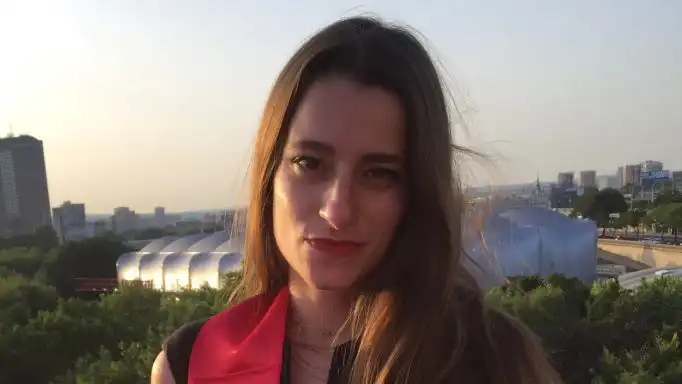Home>Héloïse, Regional Project Officer for Fragility, Crises and Conflicts at AFD
09.06.2022
Héloïse, Regional Project Officer for Fragility, Crises and Conflicts at AFD
Héloïse Voisin has graduated in International Security. Coming from France, she is Regional Project Officer for Fragility, Crises and Conflicts at AFD’s Sahel Office
>What is your role and main responsibilities?
As Regional Project Officer for Fragility, Crises and Conflicts I am involved with a portfolio of about €150M per year dedicated to prevent and curb violent conflicts in the Sahel and Lake Chad region. My role is to manage and coordinate the implementation of a €5M research program aiming to inform our development programming. Basically, I make sure that our programs are conflict-sensitive and do no harm by coordinating the production and dissemination of actionable knowledge on the region we are intervening in.
How did you secure this role?
I simply responded to a job offer on AFD’s online career portal, and after 5 rounds of interviews, I got in! Truth be told, it was not my first time applying to AFD, I had gone through many recruitment processes before that did not work. But I had my sight on AFD for a while, and I remained persistent. I remember going to the Sciences Po Career Fair in 2019, going straight up to the AFD booth, and this nice senior executive telling me « If you really want to work for AFD, one day you will! ». Now, here I am!
What is the most fascinating and/or surprising aspect at your role?
The most fascinating aspect of my role is how I work at the perfect intersection between development, emergency response, diplomacy, and just plain politics. The Sahel crisis is so complex and protracted that it requires the aid system to adapt. Our mandate as a development agency is evolving, and now we have devised instruments to help us act more swiftly and with more flexibility, as well as continuous efforts to work with humanitarian, defence and diplomacy actors (the so-called Nexus approach). I get to interact with experts of all these fields, which is truly enriching.
How did your PSIA experience help you with the role?
Being able to choose a master specialisation, as well as two concentrations, optional courses, a collective project and internships, enabled me to truly tailor my profile to my different interests. When entering the international development field, I did not think the research-part of my training would come handy, but turns out it is now more relevant than ever. Intervening in conflict-affected environments requires a strong understanding of the context(s) and even stronger monitoring, evaluation and accountability devices, which require working with researchers and analysts and understanding their language. I have PSIA to thank for such breadth of training.
What advice would you give to others?
I have so many! But my main one would be: do not self-reject! If you see a job opportunity and feel it in your soul that you would thrive in this environment, apply for it! Apply even if you do not feel 100% confident in your resume. Once I read a quote on LinkedIn that said, « If you meet all the requirements of a job offer, you are too qualified for the position ». This especially applies to junior positions, which are meant to teach you as well. Also, always negotiate your salary, and always do your research before in order to properly assess the market and the value you are bringing.
